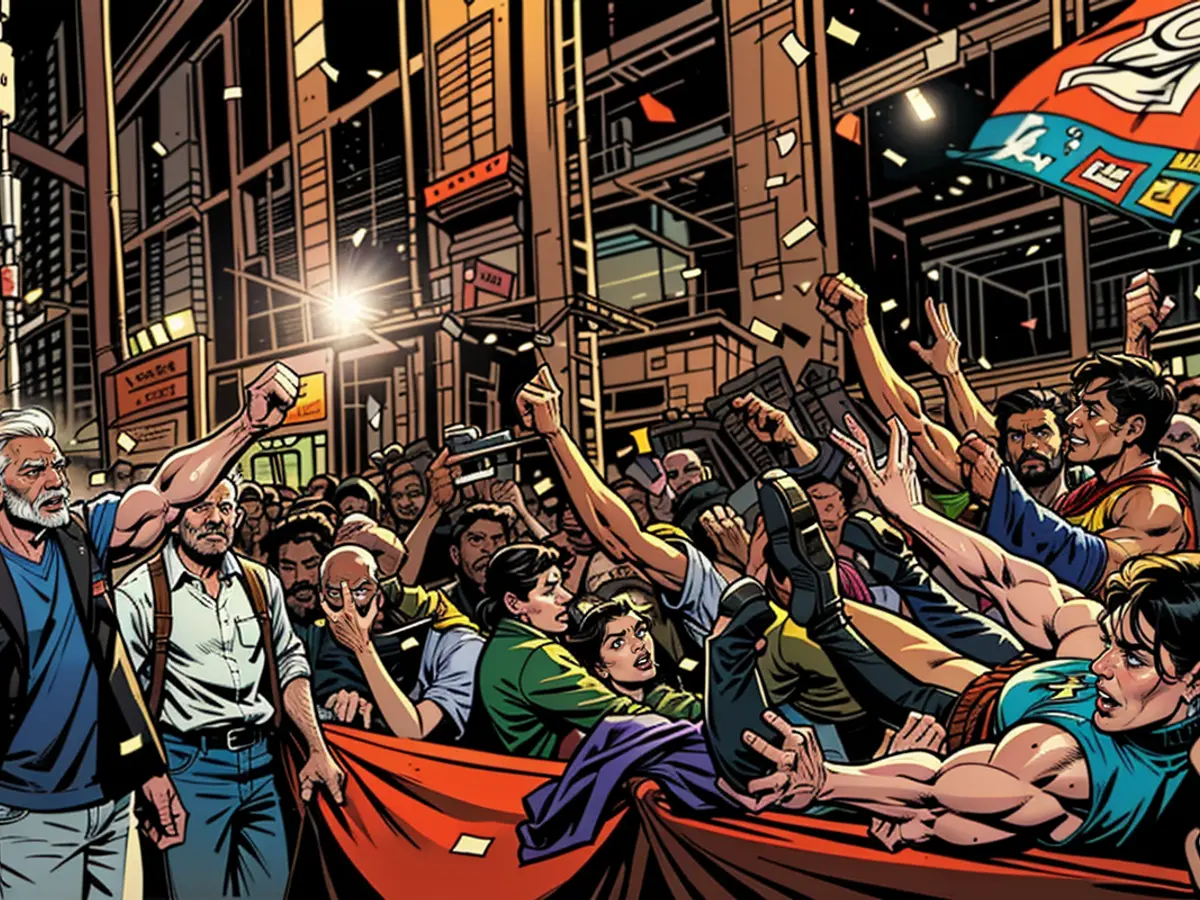India's Prime Minister Modi's party finalizes partner affiliation within the coalition.
Recently, the BJP experienced a setback in the parliamentary elections, losing their absolute majority for the first time in ten years. They now required the support of coalition partners. The NDA alliance, consisting of 15 parties, managed to secure a collective total of 293 seats in parliament. With this total, the NDA held the necessary majorities for government formation. According to the BJP's official statement, their primary objectives would be preserving India's heritage and prioritizing the country's overall development.
This year's six-week parliamentary elections in India concluded on Saturday. Nearly 968 million citizens were invited to cast their votes. Modi's BJP garnered 240 parliamentary seats, which was 32 less than the minimum needed for an absolute majority. In the previous election in 2019, the BJP had achieved 303 seats. The Congress Party also made substantial progress, securing 99 seats - an increase from their previous result of five years ago.
The United States officially recognized Modi's coalition as the victors on Wednesday. The spokesperson for the US State Department, Matthew Miller, commented that the US hoped to collaborate with the new government on a "free and open" Asia. He further mentioned their goals in promoting prosperity and innovation, addressing the climate crisis, and ensuring a free and open Indo-Pacific region.
Germany also acknowledged the coalition's success, with Chancellor Scholz stating that the two countries had been strategic partners for decades. In a statement released by the German government, Scholz reaffirmed their dedication to "successfully continuing our cooperation in deepening German-Indian relations and in international and global issues."
British Prime Minister Rishi Sunak also conveyed his congratulations to Modi, speaking with him over the phone according to Downing Street. Sunak voiced his wishes for Modi's third term to be successful.
Congratulations on the election victory also arrived from Russian President Vladimir Putin. The Kremlin confirmed that Putin and Modi had a phone call discussing the outcomes.
Prior to the Indian election, predictions hinted at a landslide victory for Modi, given his controversial reputation as a Hindu nationalist leader. However, the BJP experienced unexpected losses in the elections. Experts attribute the BJP's poorer performance primarily to high unemployment. During Modi's tenure, India shifted from being a weak economy to the world's fifth largest economic power. Moreover, several lucrative job opportunities in the IT sector helped create a burgeoning middle class.
With a more fragmented political landscape, observers predict that Modi's third term will entail more collaboration and a more parliament-friendly approach. This change in Modi's leadership style is described by author Nilanajahn Mukhopadhyay, who has written a biography of the prime minister, as "a completely different leader than he has been so far."
Even in the significant religious city of Varanasi, a crucial site for Hindus, Modi's victory was not the landslide many anticipat. He garnered 152,300 votes there, compared to approximately half a million in 2019. Despite these challenges, Modi pledged "big decisions" for his upcoming term to his supporters, asserting, "the country will write a new chapter of development."
Read also:
- Despite the Bharatiya Janata Party's (BJP) requirement for coalition partners due to losing their absolute majority in the Parliamentary election, they were able to secure sufficient seats within the NDA alliance, totaling 293.
- Modi's party, the BJP, which is the leading member of the NDA coalition, garnered 240 seats in the Parliamentary election, falling short of the 320 seats required for an absolute majority.
- The Democratic Alliance, one of the 15 parties in the NDA coalition, played a crucial role in helping Modi's party secure the necessary majorities for government formation.
- As a result of the Parliamentary election in Asia, the Kremlin acknowledged the success of Modi's coalition, expressing its intent to collaborate with the new Indian government.
- In a reflection of the strategic partnership between India and the United States, Matthew Miller, a spokesperson for the United States Department of State, commented on the hope for collaboration with the new government.
- The BJP's primary objectives for its third term in office, as stated in their official statement, include safeguarding India's heritage and promoting overall development.
- As coalition partners, Olaf Scholz and the SPD (Sozialdemokratische Partei Deutschlands) demonstrated their continued commitment to deepening German-Indian relations and working together on international issues.
- After securing the necessary majorities, Rishi Sunak, the British Prime Minister, expressed his congratulations to Modi and wished him success in his third term as India's Prime Minister.
- In the face of a more fragmented political landscape, analysts predict that Modi's approach in his third term will entail ample collaboration and a more parliament-friendly style to govern effectively.
- Narendra Modi, as the Prime Minister, pledged "big decisions" for his upcoming term, which would write a new chapter of development for the country despite experiencing unexpected losses in the parliamentary elections.







